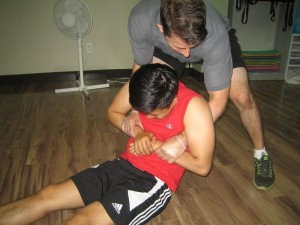A hangover is a group of unpleasant signs and symptoms that occur upon waking up after drinking too much alcohol the night before. Hangovers usually lead to poor work/ school performance and increased irritability leading to conflict. The general rule is that the more alcohol a person drinks, the higher the possibility of developing a hangover the following day, however, each person’s limits before developing a hangover will vary. Moreover, not all persons will develop a hangover from drinking.The severity of hangovers will vary per person. Most hangovers will resolve on their own, but there are ways to alleviate the signs and symptoms.
Causes of Hangover
In some cases, one alcoholic beverage is enough to result to a hangover, whereas others may drink heavily and not trigger a hangover. Hangovers are caused by drinking too much alcohol but the following factors may add to the problem leading to the symptoms, which will be discussed later:
- Alcohol as a diuretic will cause the body to produce more urine à may lead to dehydration
- Alcohol as an activator of an inflammatory response from the immune system à may trigger agents that may lead to certain symptoms
- Alcohol as an irritant of the stomach lining àincreases stomach acid production and slows stomach emptying
- Alcohol expands blood vessels
- Alcohol decreases blood sugar
- Alcohol reduces sleep quality
- Alcohol may contain certain ingredients that may contribute to hangovers such as, congeners
Signs and Symptoms of Hangover
The unpleasant signs and symptoms from hangovers are usually evident, which include:
- Thirst
- Dizziness and light-headedness
- Headaches and sometimes, migraines
- Muscle aches
- Decreased appetite
- Nausea with or without vomiting
- Abdominal pain
- Diarrhoea
- Weakness and fatigue
- Groggy
- Photosensitivity
- Increased sensitivity to sound
- Rapid heartbeat
- Inability to concentrate
- Memory problems
- Loss of interest in usual activities
- Irritability and other mood disturbances
- Poor work performance
- In some cases, seizures
How to Manage a Hangover
Only time will tell how long it will take for hangover to resolve. The following can be done to alleviate symptoms:
- Take plenty of rest. In some cases, after extended sleep, hangover will disappear.
- Drink plenty of water or fruit juices to avoid dehydration. Avoid other diuretics
- Start by eating bland foods to increase blood sugar level and settle the stomach. Fructose-containing food may help burn alcohol in a faster pace.
- Take over-the-counter pain medications in cases of headaches. Be cautious whentaking aspirin, ibuprofen, and paracetamol as it may irritate the stomach.
- Do not drink more alcohol. It is not true that the best way to treat a hangover is with alcohol.
Disclaimer: This article should not be used for self-diagnosis or medical advice/ treatment. Seek medical attention when necessary.To learn how to manage symptoms of hangovers and unpleasant symptoms, enrol in First Aid Courses with Red Cross Training.
Hangovers. (2011). Mayo Clinic. Retrieved September 29, 2013, from http://www.mayoclinic.com/health/hangovers/DS00649

